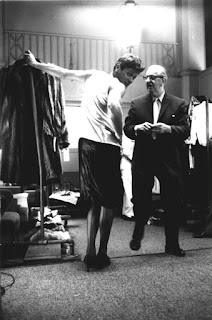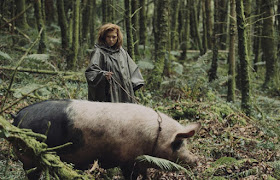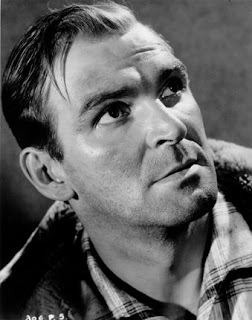With this ushering shift, I was venturing into foreign territory. I had never heard of any of these films, which was kind of exciting. It's rare in this day and age of internet leaks and spoilers to be genuinely surprised.
She’s Beautiful When She’s Angry
She’s Beautiful When She’s Angry
I love this movie.
The women's liberation movement has done so much for us, and yet today it so often reduced to, at best, a redundant cause, or, at worst, a boogeyman of a bygone era.
Finally, someone has gathered all of the key figures, the middle class housewives, the radicals, the lefties, the minority advocates, the lesbians, the academics, the activists, and let them give their own views and stories on the change they helped create.
What I most loved about this was how it used the story of one part of the movement as a springboard into another. Hence we get to go from Betty Friedan and the creation of NOW in the mid 60s to the rise of specific sub-sects, like black women, pro-choice activists, lesbians and a host of others. Rather than reduce this story to a few people, She’s Beautiful When She’s Angry really gives a sense of the scope of its impact in the early 70s. The ripples that begin with Friedan's The Feminine Mystique move out to influence a vast body of scholarship, activism and agit-pop.
This film is filled with such energy and hard-won wisdom that it makes you optimistic about the future. Sure, they were angry and confrontational. But without them, domestic abuse and rape would not have been criminalised in the public conscience, abortion legalised and faulty contraceptives replaced with safe alternatives. Women's health would not even be a concept. This documentary is a powerful tribute to their work.
Man or woman, check it out.
Wrinkles
This movie bummed me out. It is really good, don't get me wrong. But it does its job too well.
Wrinkles tells the story of Emilio (Martin Sheen), an elderly man in the early stages of Alzheimers. His family move him to an old folks home where he makes friends with Miguel (the late George Coe). Miguel is a free spirit, who has no family and is not above fleecing the more addled members of the community. However, as Emilio gradually deteriorates, Miguel is forced to confront his own selfishness.
A simple story well told, with an unsentimental but empathetic view of its characters, Wrinkles is often achingly sad. It confronts the inevitability of age and death with a maturity you would not find in a hundred live-action dramas.
Bring plenty of tissues.




















